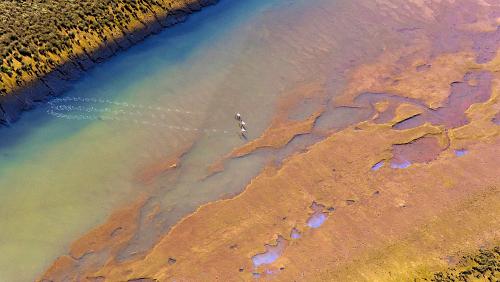Belize Invests in Sustainable Waste Solutions with Incinerator Project
Belize, a small Central American country known for its stunning natural landscapes and rich biodiversity, is taking steps to address its waste management challenges with a new incinerator project. The country’s government has recognized the need for sustainable waste solutions to manage the growing amount of waste generated by its residents and industries. The incinerator project is part of Belize’s efforts to reduce its dependence on landfilling and provide a more environmentally friendly approach to waste management.
The incinerator project is receiving significant investment and attention from the government and international organizations. It is expected to provide a long-term solution for managing the country’s waste while also contributing to sustainable development goals. With the incinerator project, Belize hopes to reduce its carbon footprint, minimize the environmental impact of waste disposal, and create new opportunities for renewable energy production.
The incinerator project in Belize is a significant step forward in the country’s commitment to sustainable waste management. It is a part of a broader strategy to shift away from conventional waste disposal methods and towards more sustainable and environmentally friendly solutions.
Investment in the incinerator project demonstrates Belize’s recognition of the urgent need to manage its waste in a more sustainable manner. The government is aiming to address the environmental and health hazards associated with traditional waste disposal methods, such as open dumping and unregulated landfilling. By investing in the incinerator project, Belize is prioritizing the well-being of its citizens and the preservation of its natural resources.
In addition to improving waste management practices, the incinerator project is expected to provide economic benefits to Belize. The incinerator will create new job opportunities in waste management, renewable energy production, and environmental monitoring. It will also contribute to the country’s goal of transitioning to a more sustainable and resilient economy.
The incinerator project is also receiving international support and investment. Organizations such as the United Nations Development Programme (UNDP) and the Global Environment Facility (GEF) have provided technical and financial assistance to help Belize implement the incinerator project. This support demonstrates the global recognition of the importance of sustainable waste management and the potential of incineration as a viable solution.
The incinerator project is part of Belize’s broader commitment to sustainable development. The country has set ambitious targets to reduce its greenhouse gas emissions, improve waste management practices, and transition to renewable energy sources. The incinerator project aligns with these goals by reducing the environmental impact of waste disposal and contributing to the country’s renewable energy production.
Furthermore, the incinerator project is expected to play a crucial role in addressing Belize’s waste management challenges. With a growing population and increasing urbanization, the country is facing mounting pressure on its waste management infrastructure. The incinerator will provide a much-needed alternative to traditional landfilling and reduce the environmental and public health risks associated with inadequate waste management.
Overall, the incinerator project in Belize represents a significant step forward in the country’s efforts to address its waste management challenges and transition to a more sustainable and environmentally friendly approach.
FAQs:
What is an incinerator?
An incinerator is a facility designed to burn waste materials at high temperatures, reducing them to ash, gas, and heat. This process is known as combustion and is used to safely and efficiently dispose of solid waste.
How does incineration work?
During the incineration process, waste materials are loaded into the incinerator and burned at temperatures ranging from 800 to 1000 degrees Celsius. The high temperatures break down organic matter and reduce the volume of waste, resulting in a significant reduction in the amount of waste that needs to be landfilled.
Is incineration environmentally friendly?
Incineration can be a more environmentally friendly option for waste disposal compared to landfilling. It reduces the volume of waste and the need for landfills, which can have negative environmental and public health impacts.
What are the benefits of incineration?
Incineration offers several benefits, including a significant reduction in the volume of waste, the production of energy through heat recovery, and a decrease in greenhouse gas emissions compared to landfilling.
What are the potential concerns with incineration?
While incineration can be a sustainable waste management solution, some concerns include air emissions, the release of potentially harmful pollutants, and the need for proper monitoring and control measures to ensure environmental and public health protection.








